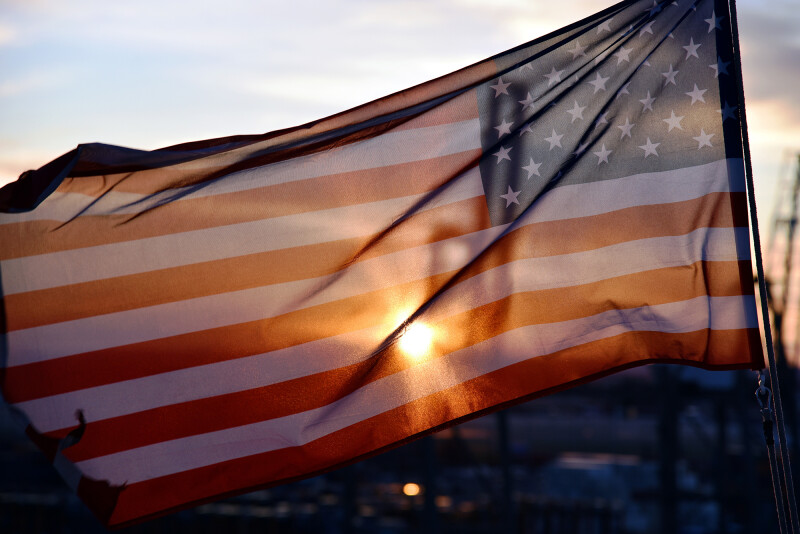In Washington, D.C., the Shipbuilding and Harbor Infrastructure for Prosperity and Security (SHIPS) for America Act is heading for a vote. But that isn’t exactly the news. The real Washington story is that the SHIPS Act has already made an enormous difference. Today, the maritime community has an obligation to celebrate — and then build upon — the surprising success of this comprehensive effort to reinvigorate America’s moribund shipbuilding sector.
Beat-down and chronically demoralized stakeholders in the U.S. maritime industry may find their new circumstances something of a shock. This is just the beginning.
Legislative initiatives usually don’t mean much until they are passed, but, in mere draft form, the SHIPS Act has been unusually influential in pushing America’s long-ignored maritime sector — along with the SHIPS Act’s congressional sponsors — to the political forefront. The promise of the SHIPS Act has already spurred investment, directly influenced White House executive orders, and put America’s waterfront into mainstream conversation.
The change in fortune has been stunning. A year ago, few outside Washington expected America to elect a president focused on reindustrializing America’s waterfront. And nobody thought that waterfront communities would, right now, be poring over President Donald Trump’s maritime-oriented executive orders to try to become a future opportunity zone.
The SHIPS Act is set to be even more influential going forward.
The recipe for the SHIPS Act’s disproportionate influence is simple. Over the past four years — and particularly over the past two years, while the SHIPS Act was crafted — a steady diet of supply chain crises and accidents pushed “the maritime” into the mainstream. American voters are finally understanding the importance — and fragility — of maritime commerce for the U.S.
As a result, America’s maritime industry has become a rare vein of bipartisan political gold, ready for political action. With voters activated to support the maritime industry, they’re set to vote for their waterfront.
The primary drivers of the SHIPS Act, Rep. Mike Waltz, R.-Florida, and Sen. Mark Kelly, D.-Arizona, represent regions that harbor few big and established maritime industries. This shouldn’t be a surprise. America’s maritime industry is so balkanized and demoralized that legislators from shipbuilding centers couldn’t do much to contribute. Kelly and Waltz were optimistic, and with no big maritime interests to protect, staffers from the major SHIPS Act sponsors approached the maritime industrial base with an open and collaborative mindset.
This lack of exposure to traditional big maritime interests paid off. Waltz and Kelly, aided by indefatigable staffers, were ideal diplomats, unconstrained by prior opinions on maritime policy. To them, there were no sacred cows, and nothing was off base. This openness to new solutions and new partners, coupled with a wide-ranging, interdisciplinary focus in drafting the legislation, resulted in teamwork and willingness to compromise.
The bill also benefited from being overlooked by official Washington. For decades, the maritime has been a depressing, dead-end industry. Few outside a handful of Washington, D.C., strategy talking shops really cared. The SHIPS Act drafters were mocked at times as overly optimistic, and their efforts doomed to almost certain failure. But that allowed the bill to mature in peace. By the time big K Street lobbyists and major industry stakeholders woke up and started plying their influence, the legislation was already baked in. Key legislative stakeholders had developed their own information-gathering networks, and largely didn’t need to rely on lobbyists to “better understand” the legislation.
Helpfully, the Biden Administration took a benign approach to the SHIPS Act. Energized by its late-2023 “Maritime State-craft” strategy, the U.S. Navy actively participated in shaping the bill, but staffers kept the effort away from program-oriented personnel who might have been more prone to bend the draft legislation toward their own particular ends.
But the real reason behind the influence of the SHIPS Act — and the reason why the maritime industry should take heart about the future — rests in the motley crew of maritime-minded legislators, activists, and advocates who fought hard for the bill.
The SHIPS Act has already helped make careers, pushing informed maritime advocates into higher office. SHIPS Act founder Waltz, a run-of-the mill four-term congressman from Florida’s 6th district, was plucked from the back benches to serve as President Trump’s national security adviser. Marco Rubio, a former SHIPS Act sponsor, is now secretary of state and is serving as Waltz’s replacement as the interim national security advisor. Kelly, after being evaluated as a possible candidate for vice president, will, thanks to the SHIPS Act, be positioned to run for higher office in a few years.
Lower-level activists and advocates are moving up as well. Evolving from a fractious November 2023 workshop at the Center for Naval Analyses, the SHIPS Act framework was largely cobbled together by a “maritime mafia” — a small, bipartisan team dedicated to recovering America’s lost position in the maritime. These outsiders — of which I was one — are also moving up. Waltz and Rubio staffers are scattered throughout the administration, and other supporters are stalking the halls of the Old Executive Office Building.
The group has been around for a while, waiting to make a difference. In mid-2022, Heritage Foundation research fellow Brent Sadler began gathering a diverse team of maritime experts. Most became contributors to the SHIPS Act, and several are set to serve in government. Steve Carmel, an early participant in the Heritage discussions, has been nominated to serve as Marad Administrator, replacing Sadler, who dropped out. Sadler will likely be considered for another, influential maritime-related posting. Others may end up in the Department of Homeland Security, supporting what may become the Coast Guard secretariat or in the Department of Defense.
For American shipbuilders and mariners, there’s a lot of folks out there cheering for them in both government and in the voting booth. America’s maritime community hasn’t had it this good for some time. And it doesn’t look like this will be just a one-time thing, either. If passed, the SHIPS Act’s positive influences will be felt for years to come.




